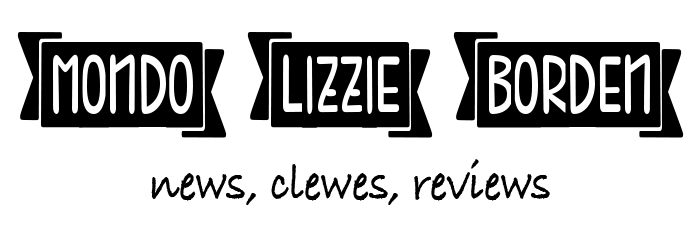Wikipedia Ficklepedia
Over the years, I have done some editing to the Lizzie Borden page on Wikipedia. I have found various erroneous statements and some factually inaccurate statements that needed correcting. This has been an ongoing process, and an ongoing headache.
As a college professor, I know that students use this Internet encyclopedia to aid them in writing term papers, to quickly research a topic, and to spot find a factoid to include in presentations. Colleges and universities are dissuading students from using Wikipedia as a resource of any kind as the nature of the site is such that anyone can post anything there, adding to the mountain of knowledge and misinformation.
Wikipedia is a grand idea, in theory—the people’s encyclopedia—free and open. But it is also everything you should be warned against about the Internet: don’t believe everything you read. When the Internet first geared up, millions of web pages appeared that were full of flubs, fiction, and faux facts—one had to rely on the academic sites to provide scholarly and fact-checked information. Today, that is still the case.
Unfortunately, this exciting experiment in online education has encountered many problems, most notably what has become known as the Essjay controversy. Several prominent pages (Adolf Hitler, Jesus, Gerry Adams, retired journalist John Seigenthaler, and others) were the victims of vandalism and malicious entries. Wikipedia’s solution? Wikipedia’s editors implemented a semi-protection policy for certain articles, and in effect, locked down certain pages from editing. In addition,
removed the ability of unregistered users to create new articles in Wikipedia.
Unregistered users will still be able to fix spelling mistakes and add to existing articles, but are required to register a user account before creating new pages. Link.
But this change in policy only came about when the national news media, and the reporter at the heart of one such attack, brought this to the attention of the public at large, exposing, as it were, the unsavory side of what an open and free encyclopedia can become.
I have had “issues” with Wikipedia for years. One problem is that you cannot contact anyone who is anyone at Wikipedia, either by mail, email or telephone. Their solution to any problems with their site is to have you work it out with the person you disagree with. They have posted extensive instructions on proper behavior and standards in disputing facts with those who have posted before you. The process even includes formal mediation. Isn’t this how eBay got started? And isn’t this what is horrible about eBay? It relies on its members to police the site, refusing to accept responsibility for any fraudulent behavior, even though they have the technology to prevent such matters from occurring in the first place.
So my Lizzie problem is that every time I update the Wikipedia page, it reverts back to the one I just corrected by the “author” or what I call the “gate keeper” of the page. For instance, take a look right now at the page.
Notice anything wrong here?
How about photos purporting to be Lizzie and Emma that are not Lizzie and Emma. I uploaded correct images, standard ones that are these people, and they get taken down time and time again and these images appear.


I mean how silly is this going to get? So what is a scholar to do? Apparently, according to Tualha, who operates as the bouncer for the page, I must follow the rules and cite every source for every fact presented on the page (even though the page that is there now does not do this!). Says Tualha
Contrary to some opinions, experts are very welcome here. But we do insist that, like everyone else, they support the claims they make in articles instead of simply waving their credentials and saying “shut up, I’m an expert”. It’s considered polite to learn a little about how we do things here before making wholesale changes and complaining when people revert them, too.
I have been put in my place, I suppose, and now if I want to work with the gate keeper, I must post footnotes. Ok, that will come in time as I find the time to spend doing this.
It is a catch22. You try to help, you try to clean up the Internet a bit in the tiny tiny corner of Lizzie Borden studies, and you find yourself being lectured by a person who feels the need to tell you that “Citing “LizzieAndrewBorden.com”, and the entirety of Rebello without page numbers or specific citations, doesn’t cut it here any more than it would in academe.”
So I guess that Wikipedia is expecting experts to do the hard work while amateurs get to rule the roost.
Poor Lizzie.




